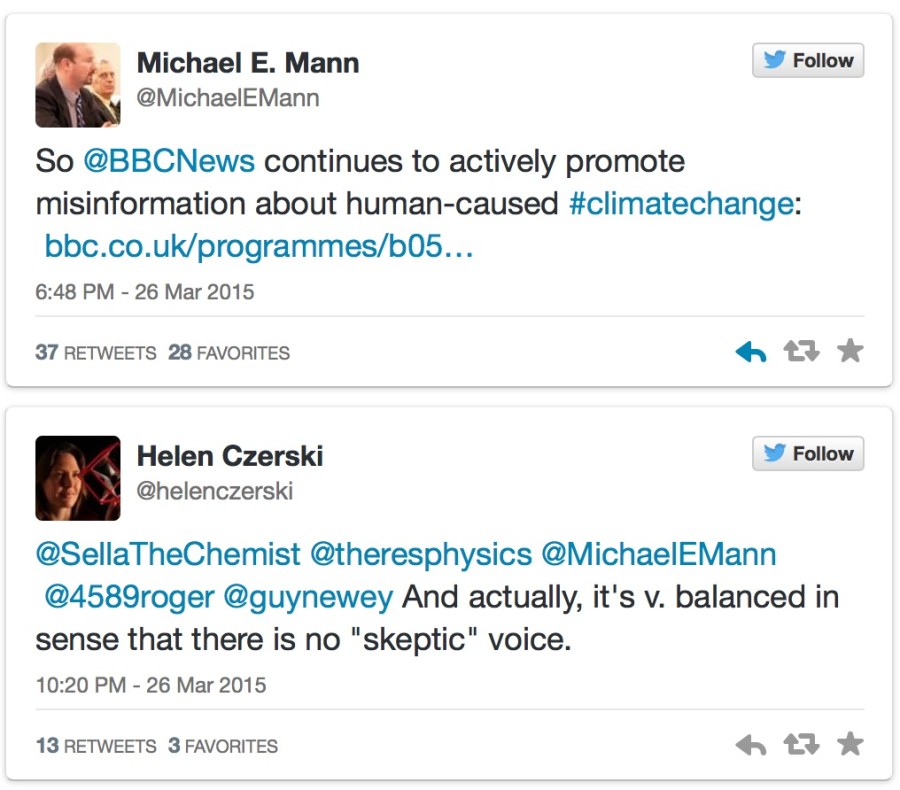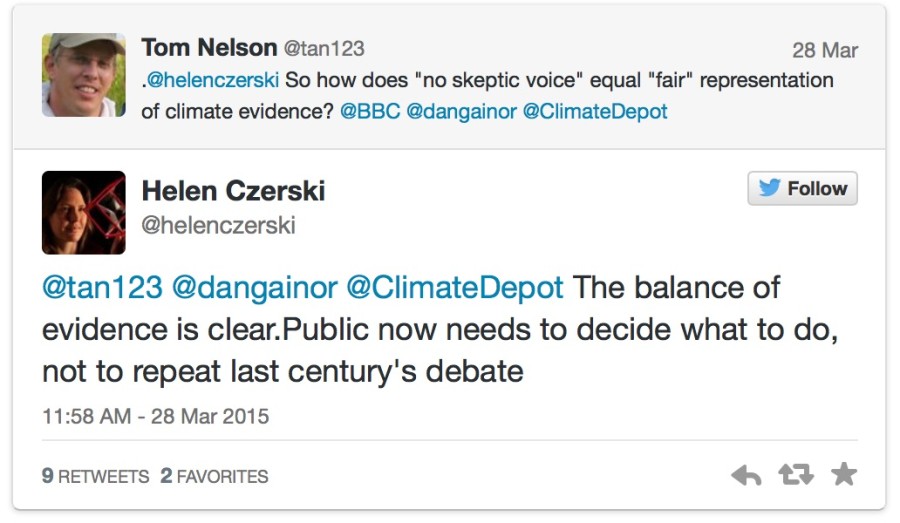Physicist Helen Czerski has managed to stir things up recently when tweeting about Climate Change: The Inconvenient Facts.
To set the ball rolling climate scientist Michael Mann took to Twitter to complain that the BBC was “actively promoting misinformation” about man-made climate change, and in reply Helen Czerski, responded that the show is “v. balanced in sense that there is no “skeptic” voice.” …
… and that then sets things rolling …
… etc (I’ll leave the rest up to your imagination).
So does this program lack balance?
To what degree is there scientific consensus on Climate Change? The popular number is 97%, but is there any data to back up that number or is it simply simply media hype? Well, it turns out that there is indeed real data behind that, as explained by Scientific American …
John Cook, a research fellow at the Global Change Institute at the University of Queensland in Australia; and 10 other scientists who blog under the collective name of Skeptical Science. The scientists examined 4,014 abstracts on climate change and found 97.2 percent of the papers assumed humans play a role in global warming (ClimateWire, May 16, 2013).
That statement quickly got boiled down in the popular media to a much simpler message: that 97 percent of scientists believe climate change is caused by humans. President Obama tweeted the 97 percent consensus. Comedian John Oliver did a segment on it that went viral on the Internet.
Predictably, climate change skeptics challenged the study. The Skeptical Science group fended off their attacks. Then fame beckoned. The paper has been downloaded more than 200,000 times, making it among the most popular scientific studies of 2013.
The scientific debate is indeed over and Helen Czerski is correct, the discussion now is not about “Is it happening?”, but rather is “What are we going to do now that we know it is?”.
Lack of Balance?
If indeed not representing the views of 3% who do not have good solid arguments is a lack of “balance”, and that they deserve to get air time on the BBC, then can I humbly suggest that the BBC should also consider the following to ensure “balance”
- All programs that discuss space flight need to also give equal air time to the flat-earth society
- All programs that discuss astronomy need to also give equal air time to astrology
- Any program that has a real scientist on, must also give air time to any random nut who holds the opposing view
- Right after thought-for-the-day by the Rev Whoever, Richard Dawkins should also be given a slot
Oh wait, that last one is not about fringe views, but rather does demonstrate that the BBC has got that “balance” very wrong. An ICM poll for The Guardian in 2006 asked the question “Which religion do you yourself belong to?”, and discovered that 63% answered that they were not religious, so clearly “Though for the day” serves a minority view.

